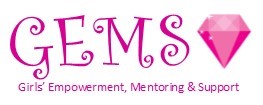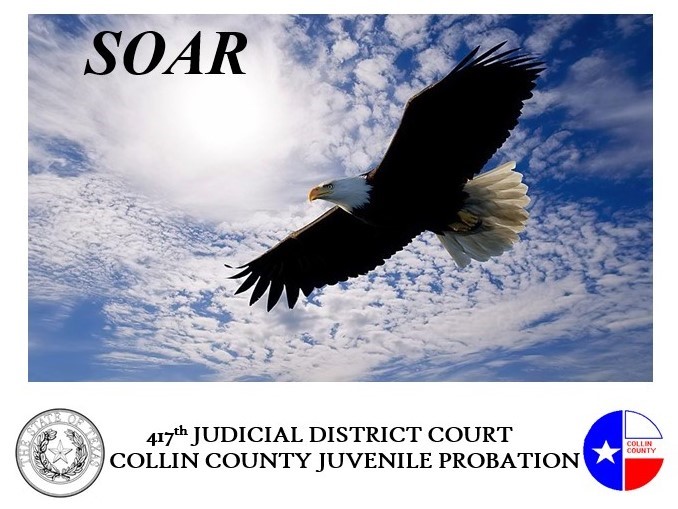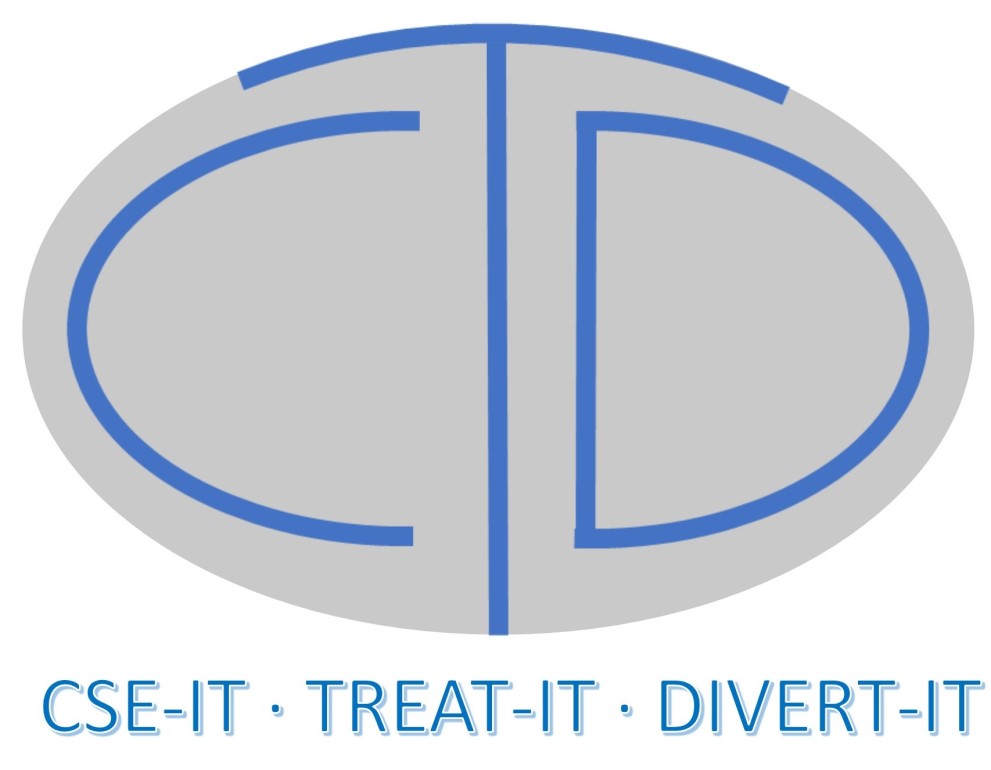Juvenile Mental Health Court Program
The Mission of the Collin County Juvenile Mental Health Intervention Program
is to help juvenile offenders who have been diagnosed with a mental illness
and who may be acting out or violating the law be successful in their homes.
Utilizing a multidisciplinary approach, the team will effectively address
mental health problems by connecting participants and their families to
treatment providers and community resources to reduce the number of juveniles
who re-offend. Collin County JMHIP aims to hold participants accountable for
their actions while building on their strengths and reconnecting them to
healthy peers, family, and adult relationships as well as prosocial
activities.
Program Structure
The Juvenile Mental Health Court Program consists of four phases. The four
phases are Bronze Level (Orientation Phase) minimum of 30 days. Silver
(Stabilization) Level minimum of 90 days. Gold (transition) Level minimum of
60 days. Platinum/Aftercare (Platinum) minimum of 60 days.
Overview: The Collin County Mental Health Court program is a
juvenile specialty court developed to support youth involved in the juvenile
justice system who are dealing with mental health issues.
Qualifiers
-
To be eligible for admission into the program, juveniles must meet the
following target population.
-
Juveniles must have a DSM-5 diagnosis other than or in addition to
substance abuse, ADHD, mental retardation, autism, pervasive
developmental disorder, and an IQ of 70 or greater.
Disqualifiers
-
Juveniles with a primary diagnosis of ODD, Conduct Disorder, and ADHD
will not be accepted into the program.
-
Juveniles adjudicated with a sex offense will be excluded from the
program.
-
Other exclusions include severe mental or emotional problems and are not
stable on medication at the time of admission, requiring inpatient
mental health care, and youth whom have a history of manufacturing
and/or distribution of illegal and synthetic drugs (drug dealing).
Target Populations: Juveniles between the ages of 10-17 are
diagnosed with mood disorders, psychosis, mania, anxiety, anger issues, and
ADHD. Other mental health diagnoses not listed, will be accepted. Juveniles
diagnosed with Intellectual and Developmental Disability (IDD) will be
admitted into the program.
Benefits
The Court can consider early termination from supervision upon completion of
the program. The Court records can be sealed, and your record can be
expunction if the law allows it.
Goal
The goal is to help the youth successfully complete probation while helping
them get connected to services to benefit the youth and family.
Application Process
Referrals are accepted from JPOs, attorneys, or community partners. Our
Probation Officer may refer you to the program. A thorough evaluation,
including recommendations, will be completed by one of our licensed
therapists. The team will meet to discuss possible acceptance.
Contact
GEMS Program (Girls, Empowerment, Mentoring & Support)

The Mission of the Collin County Juvenile Girls' Court is to help female
juvenile offenders who have been traumatized and may be acting out or
violating the law as a result of the negative experiences of their past.
Utilizing a multidisciplinary approach, the team will effectively address
underlying trauma associated with at-risk behaviors and related to delinquent
conduct. Collin County Girl's Court aims to hold participants accountable for
their actions and build on their strengths while reconnecting them to healthy
peers, family, and adult relationships as well as prosocial activities. We are
focused on the strengths of participants and their families, providing support
where needed to remove barriers.
Program Structure
The Juvenile Girl's Court Program consists of four phases. The four phases are
Sapphire level (Orientation Phase) minimum of 30 days. Ruby Level minimum of
90 days. Pearl Level minimum of 60 days. Diamond/Aftercare minimum of 60 days.
Overview: The GEMS Program is a Girls' Court program to help
empower and support girls in the juvenile justice system, and identify youth
at risk of being trafficked. The Girls' Court model acknowledges the
differences between male and female juveniles in the justice system. The GEMS
team guides the participant and her family by coordinating treatment,
counseling, community resources, supervision, and accountability.
Qualifiers
The Collin County Girl's Court is a court-centered treatment program. The
program lasts a minimum of eight (8) months in length and is open to
female youth (including those who identify as female) between 14 to 17
years, two months of age. Females who are involved in the juvenile justice
system and have suffered trauma or abuse are the focus of this program.
Girls' Court is looking for participants who:
- Females program
- Are on probation, and in need of intensive supervision
-
Have not been adjudicated for a sex crime or a violent offense with a
weapon.
- Have a history of trauma, abuse, and mental health issues.
- Are at risk of victimization
-
Do not require inpatient mental health treatment; and are willing to
comply with any prescribed medication or treatment.
Disqualifiers
Reasons for exclusion include adjudication for a sex crime, severe
mental or emotional problems who are not stable on medication at the
time of admission, requiring inpatient mental health care, and youth
whom have a history of manufacturing and/or distribution of illegal and
synthetic drugs (drug dealing).
Benefits
The Court can consider early termination from supervision upon completion of
the program. The Court records can be sealed, and your record can be
expunction if the law allows it.
Goal
The goals are to help the girls successfully complete probation and reduce
runaways and arrests.
Note: How is Girls' Court Different? GEMS differs from the
traditional court, in that the judge, prosecutor, and defense attorneys work
together, as a team, sharing in the decision-making process. GEMS team members
are all dedicated to helping young women
Application Process
Referrals are accepted from JPOs, attorneys, or community partners. Your
Probation Officer, attorney, or community partners may refer you to the
program. A thorough assessment, with recommendations, will then be completed
by one of our licensed therapists. The GEMS team will meet to discuss possible
acceptance.
Contact
SOAR Program (Successfully Opting for Accountability and Recover)

Soar is strength-based; so is focused on the strengths of participants and
their families, providing support, where needed, to remove barriers. The
Mission of this program is to promote safety in a cost-effective manner.
Collin County SOAR Program is to equip juveniles with the necessary tools to
successfully complete probation while achieving sobriety from alcohol and/or
other drugs. The drug court program will guide the juvenile and the family by
coordinating treatment, counseling, community resources, supervision, and
accountability.
Program Structure
The Soar program averages one year in length and consists of 4 phases. Phase
1. (Minimum of 30 days) - Orientation. Phase 2 (minimum of 90 days) - Skills
Development. Phase 3 (minimum of 60 days) - Transition. Phase 4 (minimum of 60
days) - Maintenance & Independence
Overview: The Collin County Soar Program is a juvenile drug
court developed to support youth involved in the juvenile justice system who
are dealing with substance abuse.
Qualifiers
The Collin County Juvenile Drug Court (SOAR) is a court-centered,
outpatient substance abuse treatment program. The program averages eight
(8) months in length and is open to youth between 14 to 17 years of age.
Juveniles who are involved in the juvenile justice system and abusing
alcohol and/or drugs are the focus of this program. SOAR will serve
offenders in need of substance abuse treatment, intensive supervision, and
drug testing services. Drug Court is looking for participants who:
- Are 14—17 years old
- Are involved in the juvenile justice system Sample Text
-
Have no severe mental or emotional problems, no adjudication for a sex
crime, and no history of drug sales offenses
- Have a moderate to severe drug or alcohol problem
Disqualifiers
- Sex Crime
- Severe Mental or emotional problems
-
A youth who has a history of manufacturing and/or distributing illegal
and synthetic drugs (drug dealing).
Benefits
The Court can consider early termination from supervision upon completion of
the program. The Court records can be sealed, and your record can be
expunction if the law allows it.
Note: You can put notes under sections where they are
relevant like this.
Goal
The goal is to help the youth successfully complete probation while becoming
drug or alcohol-free.
Note: How is Drug Court Different? The drug court approach
differs from traditional court, in that the judge, prosecutor, and defense
attorneys all work together, as a team, sharing in the decision-making
process. The Soar team members are dedicated to helping young people.
Application Process
Referrals are accepted from JPOs, attorneys, or community partners. Our
Probation Officer may refer you to the program. A thorough substance abuse
evaluation, including recommendations, will be completed by one of our
licensed therapists. The Soar team will meet to discuss possible acceptance.
Contact
CTD Diversion Program (CSE-It, Treat-It, Divert it)

The CTD is designed to help youth who are at high risk of being trafficked or
exploited. Our program hopes to connect the participant and family with
community resources and support, in hopes of preventing further involvement
with the juvenile justice system.
Program Structure
The CTD program is a voluntary six-month program designed to identify and
address the participant's and family's needs. If a participant
cooperates/participates in the CTD program, working toward completion of the
identified goals, the case will be closed by the juvenile Probation Department
with no further action needed.
Overview: We use a strengths-based model that focuses on
skill-building. Partnering with the family, and building on their strengths to
bring about positive change. We are here to support the youth and his/her
family, offering therapy, and supportive services to try to help the youth
stay out of the juvenile justice system and in their home with their families.
Qualifiers
-
The program is open to both males and females between the ages of 10 -
17 who are victims of commercial sexual exploitation/human trafficking
or who have been identified as high-risk youth by partner agencies or
law enforcement. This also includes habitual runaways.
Disqualifiers
-
Excluded offenses: Sexual offenses, aggravated robbery, and aggravated
assault with a deadly weapon.
Benefits
Free Services Provided
- Supportive, intensive, in-home services for up to 6 months
- Assessment and goal-setting with the family
- Life skills building for the youth and his/her family
- Groups/Classes/Activities, to include Human Trafficking awareness
- Individual & Family Counseling (or referral);
- Substance abuse education and counseling (or referral);
- Parenting skill development
- Support for rebuilding family relationships
- Flexible scheduling
- 24/7 availability in crisis
-
Help in all life domain areas: residential, family, social, educational,
vocational, medical, psychological, emotional, legal, safety, cultural,
community, and more
Goal
The goal of the Diversion Track is to divert these youth from the juvenile
justice system and help keep them in their home, through supportive services,
education, and treatment for the youth and his/her families.
Note: The applicant does not need a court order. The program
is open to all qualified individuals.
Application Process
Referrals are accepted from JPOs, attorneys, or community partners. Our
Probation Officer may refer you to the program. A thorough evaluation,
including recommendations, will be completed by one of our licensed
therapists. The team will meet to discuss possible acceptance.
Contact
Team Members
Resources and Forms
